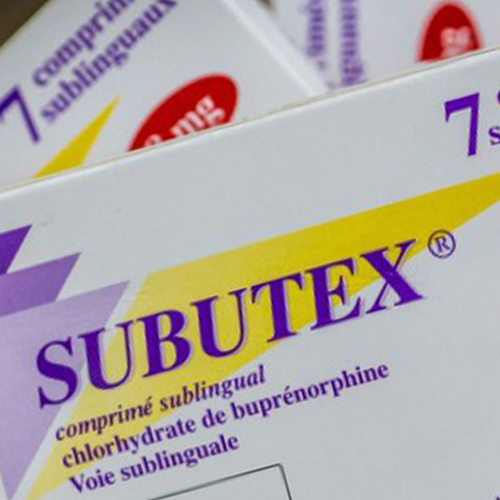

Subutex is a prescription drug used as a treatment for opiate addiction. The main drug in Subutex is buprenorphine, an opioid partial agonist. While Subutex is similar to Suboxone, the latter also contains naloxone, which can help to hamper improper use. When a user tries to inject Suboxone, the naloxone triggers withdrawal symptoms. Subutex is usually administered via a pill that is placed under the tongue to dissolve.
Buprenorphine has led a variety of dangers. A 2010 report by the Substance Abuse and Mental Health Services Administration found that 30,135 emergency room visits that year involved buprenorphine. Compare that to just 3,161 emergency room visits five years earlier.
Symptoms of Subutex Addiction
Contrary to popular belief, drug addiction has nothing to do with morals or willpower. Addiction is based on a chemical imbalance in the brain. The main chemical involved is dopamine, a neurotransmitter involved in a variety of functions, including motivation, pleasure, movement, and reward. To adjust, your brain may produce less of this neurotransmitter or block some of its effects. This forces you to take more of the drug to maintain normal dopamine levels while also triggering the sense of pleasure and reward.
Some common symptoms of Subutex addiction include:
- Taking the drug more often than was prescribed
- Isolating yourself from loved ones
- Resorting to illegal methods to obtain Subutex
- Hostility when asked about their Subutex use
- Neglecting responsibilities at home, work, or school
Common symptoms of withdrawal from Subutex include:
- Nausea and vomiting
- Diarrhea
- Aching muscles
- Bone and joint pain
- Fever / Sweating
- Irritability
- Runny nose
- Flu-like symptoms
- Intense cravings
Effects of Subutex Use
The Effects of Subutex
The effects of Subutex (or buprenorphine) resemble those of other opiates, namely a feeling of euphoria, calm, and complete relaxation. This contributes to the pain relieving qualities as it effects how the body perceives and reacts to pain.
However, that sense of calm and pleasure can come with a variety of side effects, most commonly:
- Stomach pains
- Nausea
- Vomiting
- Constipation
- Headache
- Sweating
- Insomnia and general sleep problems
- Breathing troubles
- Confusion
Dangers of Subutex Use
Although Subutex is used as an effective treatment for opiate addiction, it still contains opioid agonists, and so it has some addictive potential. Addiction is a danger to your body, but it has a significant impact on your behaviors as well. It can make you do or say hurtful things, turn to crime, and cause reckless, uncharacteristic behavior that hurts yourself and those around you.
Subutex can potentially cause liver problems and potentially stop your breathing entirely. Avoid using Subutex with alcohol or other over-the-counter pain relievers. Avoid driving or operating heavy machinery as Subutex may also cause drowsiness or coordination issues.
You may also have an allergy to Subutex if you experience itching, rash, hives, or swelling in the face, lips, tongue, or throat.
Complications of Subutex Use
- Problems swallowing
- Severe sleepiness or fatigue
- Upset stomach
- Abdominal pains
- Unusual bruising or bleeding
- Loss of appetite
- Pain in the upper right of your stomach
- Jaundice (yellowing skin or eyes)

Medical Intervention for Subutex Addiction
Medical Intervention
As intimidating as Subutex addiction may seem, immediate medical intervention can help reverse its effects and return a sense of control to your life. Medical intervention often involves medication, which can help work the toxins out of your system, curb withdrawals, block the drug’s effects, or all of the above.
There are a variety of medicines that doctors may prescribe for opiates like buprenorphine. Methadone tends to be the most popular. It only needs to be taken once a day, can successfully curb cravings, and block the effects of opiates.
However, methadone does have an addictive potential. Users already addicted to buprenorphine may feel more comfortable seeking counseling and therapies, including cognitive-behavioral therapy, contingency management, or group therapy.
RECOVERING FROM SUBUTEX ADDICTION
Recovery
Detox sets the foundation for recovery, but it’s just the first part. Most detox programs lead directly into longer rehab programs usually involving therapy, counseling, and classes to educate and provide you the tools you need for long-term sobriety. By detoxing in safe and supportive environment you set yourself up for success on the road to recovery.

How to Find the Right Subutex Detox Center for You
Our goal at Georgia Drug Detox is to help you find an inpatient detox treatment center that will get you started on your road to recovery. If you have questions about treatment or insurance, please don’t hesitate to ask. To begin the admission process, call us at (678) 771-6411 and regain control of your life.

